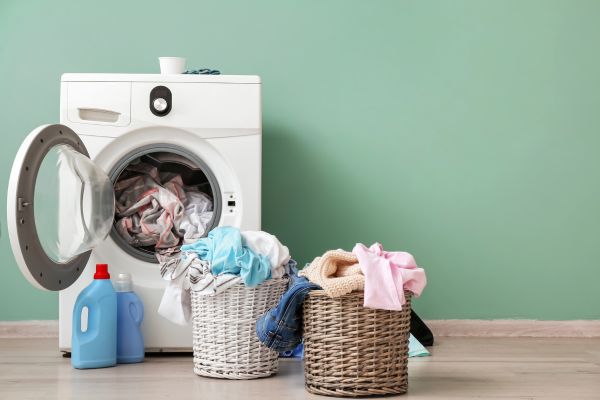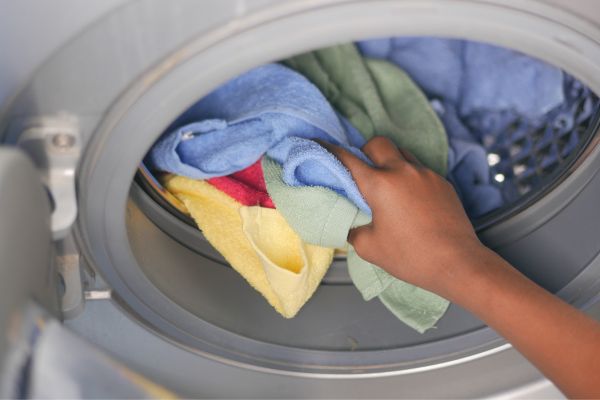Have you ever wondered why your washing machine does not feel to last as long as it should? Or why are your clothes not coming out as clean as they used to? The malefactor might just be lurking in your water force hard water. In this blog, we will explore the effects of hard water on your washing machine and claw into why softeners are essential for maintaining their life and performance.
What is Hard Water? Before we claw into the effects of hard water on washing machines, let’s first understand what exactly hard water is. Hard water is water that contains high situations of dissolved minerals, primarily calcium and magnesium. These minerals are picked up as water passes through jewels and soil, performing in high mineral content.
Now that we know what hard water is, let’s move on to the main topic of discussion: how it affects your washing machine.
How Does Hard Water Affect Washing Machines? The Effects of Hard Water on Washing Machines

Scale Build-up
Hard water poses a significant threat to the longevity and efficiency of washing machines due to its tendency to form scale build-up. When hard water is heated, minerals such as calcium and magnesium precipitate and adhere to various surfaces within the machine. This results in the formation of limescale deposits, which gradually accumulate on heating elements, pipes, and the drum. Over time, the build-up restricts water flow, reduces heating efficiency, and hampers the overall performance of the machine. The clogged pipes and compromised heating elements may even necessitate costly repairs or premature replacement of the appliance. Softeners for washing machines combat this issue by removing the minerals responsible for scale formation, ensuring that your washing machine remains free from these detrimental deposits.
Decreased Performance and Efficiency
Another consequence of hard water is its adverse impact on the cleaning performance and efficiency of washing machines. Hard water contains minerals that react with the active ingredients in detergents, leading to the formation of soap scum. This soap scum can adhere to fabrics, leaving a dull and stiff residue. As a result, your clothes may not be thoroughly cleaned and could retain odors. Additionally, the mineral deposits left behind by hard water after each wash cycle can accumulate on fabrics, making them less soft and comfortable. By using a Softener for washing machine, you can counteract these effects, allowing detergents to work optimally and ensuring that your clothes come out cleaner, fresher, and softer after every wash.
Understanding how hard water affects washing machines is crucial in appreciating the necessity of using a softener. Softeners not only prevent scale build-up, which can impedeSoftener for washing machine the functioning of your machine, but they also enhance the cleaning performance and maintain the efficiency of your washing machine. In the next section, we will explore the importance of softeners in further detail, focusing on how they protect washing machine components, improve cleaning performance, and contribute to energy and cost savings.
What is The Importance of a Softener?

1. Protecting Washing Machine Components
Installing a softener for your washing machine is crucial for safeguarding its vital components and ensuring their longevity. By effectively removing the minerals present in hard water, softeners prevent the formation of limescale. This, in turn, minimizes the risk of clogs and blockages in the machine’s heating elements, pipes, and drum. With reduced mineral build-up, your washing machine can operate smoothly and efficiently, avoiding costly repairs or premature breakdowns. Investing in a softener becomes an investment in the long-term health of your washing machine.
2. Improved Cleaning Performance
Soft water plays a key role in enhancing the cleaning power of your washing machine. By eliminating the minerals found in hard water, softeners enable detergents to work more effectively. Without the interference of mineral deposits, detergents can create a rich lather that penetrates deep into the fabric fibres, effectively lifting dirt, stains, and odours. As a result, your clothes emerge from each wash cycle cleaner, fresher, and free from residue. The improved cleaning performance ensures that your garments look their best and maintain their quality over time.
3. Energy and Cost Savings
Incorporating a Softener for a washing machine can lead to significant energy and cost savings. Limescale build-up caused by hard water can hinder the heating efficiency of your machine. However, by preventing scale accumulation, softeners optimize the heating process, reducing the energy required to heat the water. This translates into lower energy bills and a more eco-friendly laundry routine. Furthermore, soft water requires less detergent to achieve the same level of cleanliness compared to hard water. By using fewer detergent quantities, you can save on detergent expenses while still achieving excellent cleaning results.
By recognizing the importance of a softener, you can protect your washing machine, enjoy cleaner clothes, and experience long-term energy and cost savings. A softener becomes an indispensable companion in the battle against the adverse effects of hard water.
Conclusion
The effects of hard water on your washing machine can be detrimental, leading to scale build-up and decreased performance. However, by installing a softener, you can effectively counter these effects and unlock a range of benefits. Softeners play a vital role in safeguarding the components of your washing machine, improving its cleaning performance, and contributing to energy and cost savings.
With a softener in place, you can extend the lifespan of your machine, enjoy cleaner and fresher clothes, and reduce your environmental footprint. The importance of softeners cannot be overstated when it comes to maintaining the health and efficiency of your washing machine. In the next section, we will delve into the technical aspects of softeners and explore different types available in the market, helping you make an informed decision for your specific needs. Stay tuned to discover how to select the perfect softener to combat the effects of hard water effectively.






